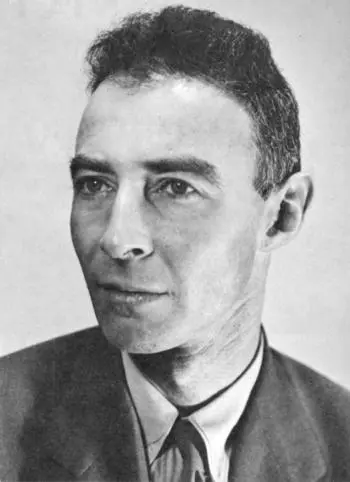
Robert Oppenheimer, whose full name was Julius Robert Oppenheimer, was born on April 22, 1904 in New York City, United States. He was a leading American theoretical physicist and a key figure in the development of the atomic bomb during World War II, commonly known as "the father of the atomic bomb."
Oppenheimer was born into a wealthy Jewish family. He showed an early interest in science and excelled academically from his youth. He studied chemistry at Harvard University, but later switched to physics. Subsequently, he earned his PhD at the University of Göttingen in Germany, where he worked with leading physicists such as Max Born and Wolfgang Pauli.
In the 1930s, Oppenheimer made important contributions to theoretical physics, particularly in the fields of quantum mechanics and quantum field theory. He became a professor at the University of California, Berkeley, and played a vital role in establishing the Berkeley Radiation Laboratory.
Development of the atomic bomb: the Manhattan Project
During World War II, Oppenheimer was appointed as the scientific director of the Manhattan Project, a top-secret research and development project aimed at building an atomic bomb.
Under his leadership, the project managed to successfully develop and test the first atomic bomb in the New Mexico desert on July 16, 1945. The test was dubbed "Trinity."
The successful test led to the use of atomic bombs on the Japanese cities of Hiroshima and Nagasaki in August 1945, which played a crucial role in ending the war.
Position on nuclear weapons after the war
After World War II, Robert Oppenheimer's position on atomic bombs changed significantly. Although he had been a key figure in the successful development of the atomic bomb during the war, he became an advocate for international control of atomic energy and was concerned about the nuclear arms race.
Oppenheimer was deeply affected by the devastating consequences of the atomic bombs that were dropped on Hiroshima and Nagasaki in August 1945. While these bombs helped end the war, they also caused enormous destruction and loss of life, leading to a strong reflection on Oppenheimer and many other scientists involved in the Manhattan Project.
Oppenheimer security clearance revoked
As chairman of the United States government's Special Services Advisory Committee (GAEC), Oppenheimer advocated a focus on nuclear weapons control and the prevention of their proliferation. He believed that the nuclear arms race was dangerous and that the world needed to avoid nuclear war at all costs.
However, his position and growing concern about nuclear weapons attracted government attention during the Cold War era and the anti-communist Witch Hunt period in the United States. He was accused of having communist sympathies and of being a risk to national security.
In 1954, his security clearance was revoked by the government, effectively ending his direct involvement in matters involving atomic energy and nuclear weapons.
In the following years, Oppenheimer continued his work in theoretical physics, focusing on astrophysics and quantum theory. He was director of the Institute for Advanced Study in Princeton, New Jersey, from 1947 to 1966, where he influenced the research of many young physicists.
Death of Robert Oppenheimer
Robert Oppenheimer passed away on February 18, 1967 at the age of 62. His death occurred due to complications related to his throat and esophagus.
In the last years of his life, Oppenheimer had battled a number of health problems, including throat cancer. Despite receiving medical treatment, his health condition deteriorated and he eventually passed away in Princeton, New Jersey, United States.


